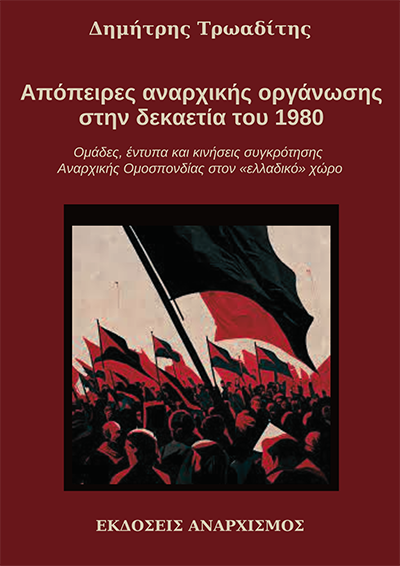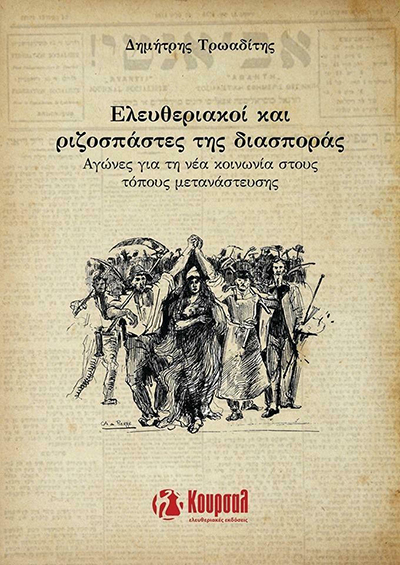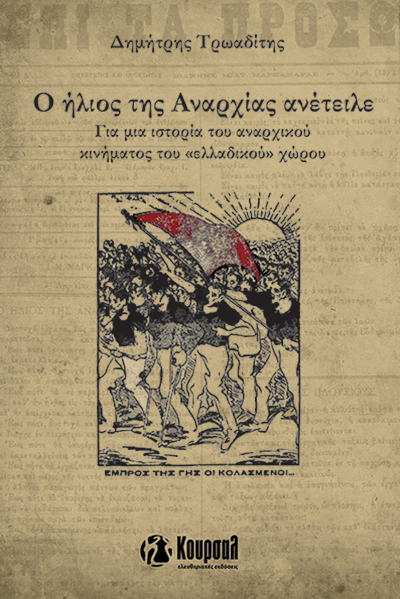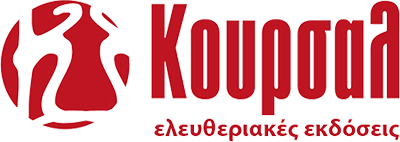- Jack Ray
- English
A short history of the Andartiko, Greek Resistance partisans who fought fascist occupation. This article is highly uncritical and we disagree with some of it but reproduce it here for reference.
Its radical, democratic working class spirit was only put down after the Allied victory, by British forces and the Greek ruling class.
Nowhere in Europe was resistance as simple as good guys in the hills with rusty rifles, and bad guys wearing swastikas and burning villages, but Greece was particularly complex. Even the Italian decision to invade seems bizarre, motivated by a desire to counter German influence in Rumania. After the Italians were humiliated by the Greek Army and their allies, the Wehrmacht stepped in and broke the stubborn resistance in April 1941. Even that wasn't simple, the old Greek ruling class were never shy in showing their sympathy for Nazism, and defeatists in the army and government tripped over one another in the race to capitulate. One such turncoat – General George Tsolakoglu formed a quisling government, while the Germans turned over most of the occupation to the Italians.
At least in spirit, much of the Greek population immediately embraced resistance. The war effort against the Italians had been popular, and in the early days of occupation large crowds applauded lorry loads of British POWs who had fought with the Greek Army. Near the capital, two young men climbed the Acropolis one night and stole the swastika that the occupiers had hung there, dodging the Wehrmacht sentries as they fled. Graffiti was daubed across Athens mocking their conquerors; if the Italians wrote 'Vinceremo - M' (We Will Overcome - Mussolini), the locals added 'erda' to the M to make the Italian word for shit. Some acts were more than symbolic; saboteurs destroyed ships in Piraeus harbour and a munitions dump in Salonika in May. By the Autumn this hostility to the Fascists flickered into an insurrection as bands of fighters emerged in the mountains of Northern Greece, attacking German troops and transport links. These groups dispersed as heavy reprisals made their operations impossible. The Germans burned down villages and massacred peasants to frighten people out of aiding the insurgents. As the resistance dissipated, the horrors of occupation began: Bulgarian troops ethnically cleansed Thrace, sending thousands of refugees toward central Greece, in the German and Italian zones, food requisition, pillaging and looting fuelled a famine that would kill 300,000 people.
With the political elite in exile, the stage was set for the Communist Party of Greece (KKE) to play a key role in the resistance movement. Communist activists were well-used to clandestine activity, having spent half a decade being persecuted by the pre-war Metaxas dictatorship, and started building networks soon after the surrender. Forming the National Liberation Front (EAM) in September. Mainstream politicians steered clear, preferring to wait for the outcome of the war, and to kow-tow to the Churchill-backed national government (headed by King George) now in Egypt. The EAM became a whirlwind of activity, establishing sections for civil servants,...
- Κωνσταντίνος Ηλιόπουλος
- Αναρχική Θεωρία
(Από τας σημειώσεις του αποθανόντος ομοϊδεάτου Κ. Ηλιόπουλου).
Οι πτωχοί μόλις γίνουν κύριοι πλούτου, μιμούνται τους πλουσίους τους οποίους βλέπουν να καλοπερνούν εκ της εργασίας των άλλων. Ο άνθρωπος εφ' όσον είνε αμόρφωτος υπό κοινωνικήν έποψιν, θέλει τον πλούτον δια να καλοπερνά εγωιστικώς όπως βλέπει το όλον κοινωνικόν παράδειγμα γύρω του.
Ο άνθρωπος ο μορφωμένος κοινωνικώς, ο πιστεύων ότι η σημερινή ζωή είνε: μία καθαρά αναρχία προστατευομένη υπό της βίας του νόμου και ότι αν η κοινωνική αυτή αναρχία δεν λείψη και δεν αντικατασταθή το νομοθετικόν αναρχικόν σύνολον, ο αληθής πολιτισμός δεν θα ανατείλη στον κόσμο, ο ούτω μορφωμένος άνθρωπος,...
- Κωνσταντίνος Ηλιόπουλος
- Αναρχική Θεωρία
Με αίσθημα κάπως παράδοξον, αλλ' όχι και ευχάριστον, γράφομεν αυτήν την λέξιν την οποίαν αναγιγνώσκετε παραπάνω.
Διότι χωρίς να θέλομεν σπρώχνει τον νουν μας εις εποχάς τρικυμιώδεις, κατά τας οποίας η ανθρωπότης εκυλίετο εις το αίμα της.
Διότι μεταξύ τόσων και τόσων ανθρωποφάγων και αιμοβόρων, μάς υπενθυμίζει τον Σύχαν τον τρομερόν, ο οποίος, αφού έχυσε ποταμούς αιμάτων και ύψωσε σωρούς από πτώματα, επήγεν κατόπιν στα Σάλωνα να πεθάνη από φυσικόν θάνατον και να διαψεύση το ρητόν "μάχαιραν έδωσες μάχαιραν θα λάβης".
Διότι μάς υπενθυμίζει Ροβεσπιέρον τον τρομερώτερον, ο οποίος το "μάχαιραν έδωσες..." το επεκύρωσε με τον θάνατόν του, διότι παρέδωσε...
Στο κτήριο της Ελληνικής κοινότητας της Μελβούρνης στις 18/07/2019
Με τον Ελευθεριακό στο Αυτοδιαχειριζόμενο Στέκι Πέρασμα, 22/01/2018




